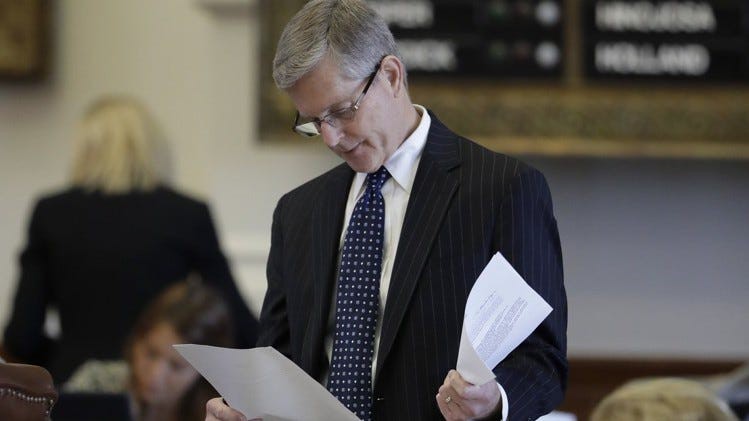opinion
Texas Cops Demand Right to Bury Misconduct Files Like a Dog With a Shameful Bone
Texas lawmakers want to hide police misconduct records in a super-secret 'G file'—because nothing says 'trust us' like a legally enforced lack of transparency.

By Alex Jaxon
Published July 25, 2025 at 9:00am

In a stunning move that can only be described as 'totally not suspicious at all,' Texas lawmakers are pushing to hide police misconduct records faster than a cop can say, 'I was just following protocol.' Senate Bill 14, lovingly nicknamed the 'Shhh, Don’t Tell the Peasants Act,' would ensure that any internal investigation that conveniently finds no wrongdoing is locked away in a super-secret 'G file'—presumably short for 'Gee, we sure hope no one asks about this.'
Proponents of the bill, mostly law enforcement groups who definitely don’t have anything to hide, argue that the public doesn’t need to know why an officer was cleared of misconduct. 'Why should taxpayers get to see how we investigate ourselves?' asked one officer, who requested anonymity because, well, that’s kind of the point of the bill. 'Trust us, we’re professionals. Also, please ignore that time we accidentally tased a grandma at a traffic stop. That was just a training exercise.'
Sen. Phil King, the bill’s architect, insists this is all about 'standardization.' Because nothing says 'fair and balanced' like making sure every police department in Texas has the same right to bury their dirty laundry. 'If an officer is exonerated, why should you know why?' King reasoned, presumably while shredding a stack of FOIA requests with his bare hands.
Meanwhile, in Pflugerville, residents are just thrilled to learn that if their police chief resigns mid-scandal, all records of the scandal will vanish like a magician’s assistant. 'It’s like the ultimate 'delete your browser history' button,' said one local, who may or may not have been sarcastic. 'Very cool, very legal.'
And let’s not forget the Texas Commission on Jail Standards, which will now be legally barred from seeing if detention officers have a habit of, say, 'accidentally' forgetting to feed inmates. 'But don’t worry,' assured a police union rep, 'we’ve got checks and balances—like that one time we investigated ourselves and found we did nothing wrong.'
Opponents of the bill, including people who still naively believe in 'transparency,' warn that this could lead to a dystopian future where police misconduct is swept under the rug faster than you can say 'qualified immunity.' But hey, at least we’ll always have the comforting knowledge that our law enforcement agencies are definitely not hiding anything. Probably. Maybe. Just don’t ask.

